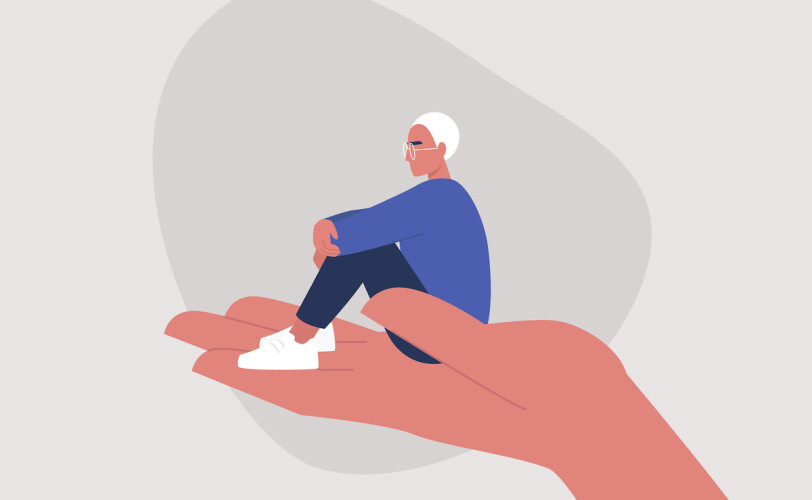Understanding anorexia
Anorexia is often misunderstood. The drive to protect this 'state' of being by the sufferer often causes confusion and disbelief in others. It’s a destructive, devastating and addictive process that only those who have experienced it can fully appreciate. Whatever the trigger, it’s a complex illness but one that you can recover from.

The negative mindset associated with all eating disorders can be disturbing and in anorexia, you can find yourself having thoughts and beliefs that could become fatal. Logical thoughts and concentration suffer as the weight is lost and the body goes through all manner of imbalances and reactions to the stress of starvation.
You don’t necessarily lose your appetite, you can ‘feel’ starving but these feelings become the norm, like living with a pain that’s been present for years. In periods of starvation (also extreme crash dieting and bulimia) endorphins are released to relieve pain and this in itself can become addictive.
Clients often tell me they feel fit and have great energy, when in fact their body is being eaten away. This is a useful device if you need to find the strength to search for food during famine but all feelings of well-being and energy disappear as the illness takes its toll on both body and brain.
So these endorphins are similar to opiates, and like heroin have a profound effect on the mind and body. Emotional numbness acts like pain relief, creating a zombie-like state and anhedonia (the inability to enjoy the pleasures of life). Memory loss of crucial moments of the day can be very upsetting, as can lack of empathy and a general detachment from the real world.
Isolation like this is necessary for the illness to maintain its hold and this is why I encourage socialisation as part of recovery.
If you have no experience of anorexia yourself you may have experienced the release of endorphins on exertion, for example in periods of exercise. Marathon runners experience rushes of endorphins to relieve pain and allow them to take the body where it would not willingly go. Starvation, in anorexia, does this too. It’s used as a survival mechanism to help us through extreme events, like starvation, it stops us giving up.
In the world of anorexia you can feel cushioned but only with continued starvation, the weight is never low enough, and the possibility of complications get ever closer as weight plummets.
In recovery, there is a loss of endorphin release. Real feelings begin to return and with it the regaining of normal mental and physical experiences. Although this can be a difficult time and leads to relapse in some, many find support and move past this step to recovery.
There is hope and any step to recovery is worthwhile. If you are looking for support, you can start your journey today by reaching out to a private counsellor.
Learn more about eating disorder myths, feel inspired by recovery stories and find out why we need to change our relationships with food.

Find a therapist dealing with Eating disorders
All therapists are verified professionals





